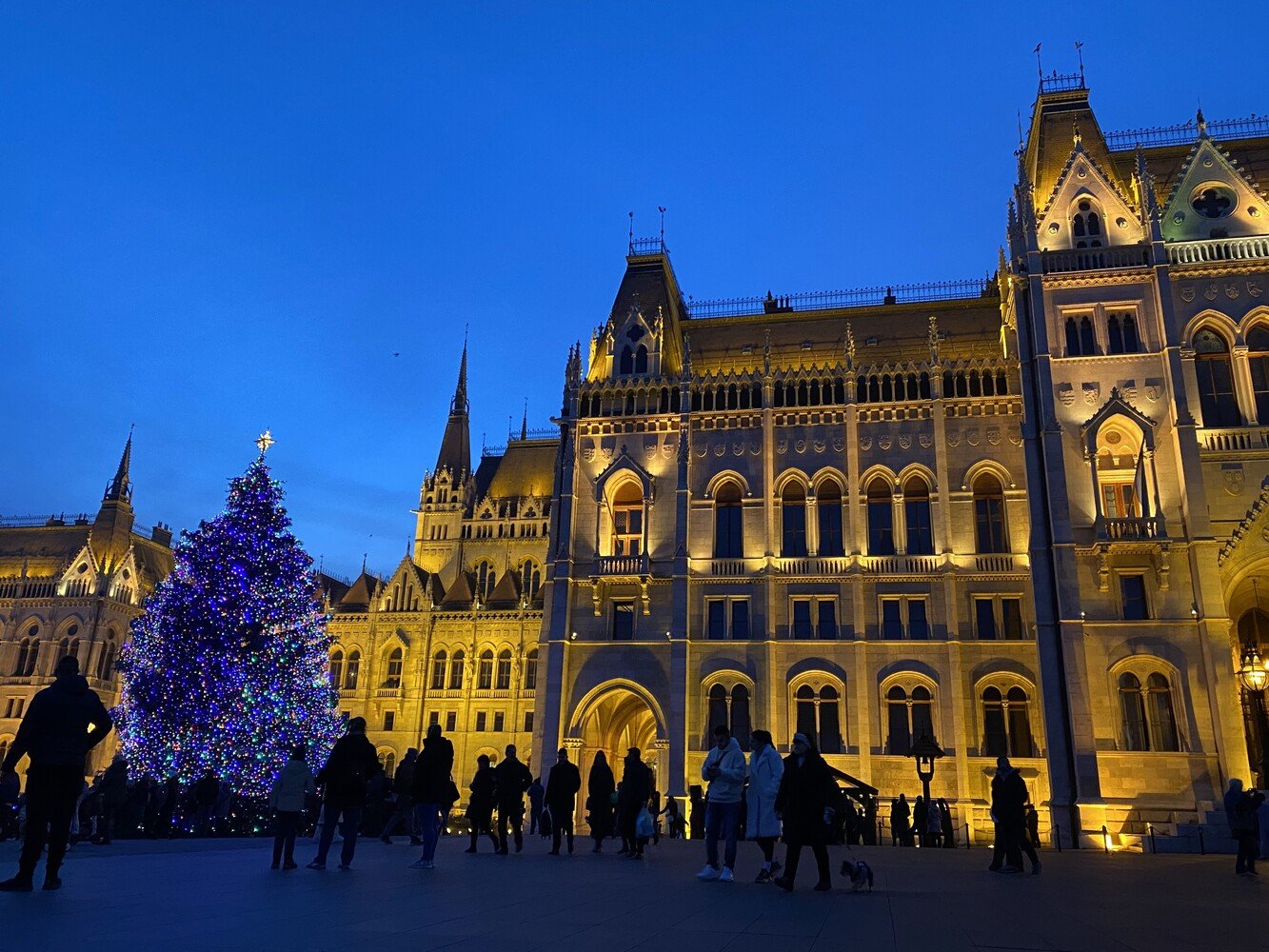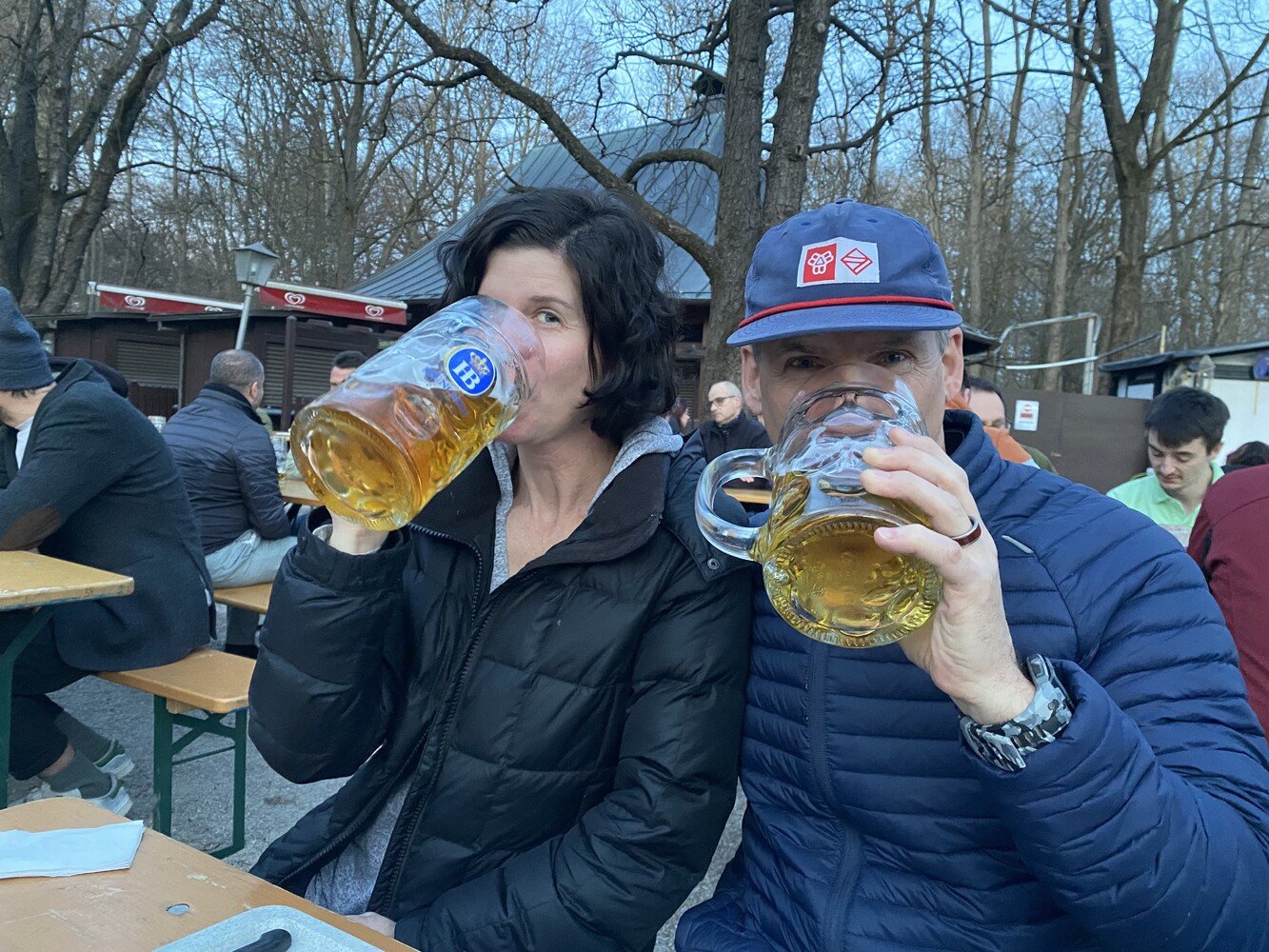7 Reasons to Travel in the Off-Season
Salzburg, Austria
We all have our own relationship to travel, and mine has been forever changed by the power of off-season travel. It all began in 2019 when I found myself on a journey of remarriage and a desire to meet my girlfriend's family in Ireland. However, due to our busy family summer schedules, we opted to be different and go in November, Ireland’s off-season.
Despite the rainy and cold weather, I discovered the hidden beauty and magic of traveling during the off-season. Nothing was in full bloom; yet, amidst this seemingly bleak backdrop, I experienced a profound transformation. The absence of the typical tourist chaos and endless crowds allowed us to connect with the destination on a deeper level. It was an intimate and personal experience that left a lasting impression on both of us.
Fast forward three years – my wife and I were planning our honeymoon, and, because of our incredible experience in Ireland, we deliberately chose to go to Eastern Europe in December, embracing the strategy of off-season travel once again. We craved a stress-free and enjoyable experience, fully aware of the changes that had come with our new life as parents to three busy children. Off-season travel became our escape, our opportunity to relax and reconnect individually and as a couple.
As someone who loves travel and works in the industry, I understand the impact of over-tourism. The summertime and holidays, when most people have the chance to travel, become synonymous with crowds, reservations, lines, chaos and so much more. It's no longer the enjoyable exploration it once was.
So I invite you to explore the wonders of off-season travel with me. Let's be different and break free from the crowds, travel when the weather is definitely not perfect, rediscover the joy of quieter moments, and embrace the magic that comes with exploring destinations when they are at their most authentic. It will be a journey that promises relaxation, personal connections, and a renewed appreciation for the true essence of travel.
1.FEWER CROWDS
Traveling during the off-season means fewer crowds, hassles, and lines. You can finally have those front-row seats you’ve always wanted without having to fight for them. With fewer people around, you can also have more intimate experiences with some of the destination’s top attractions – many of which are practically inaccessible during peak season.
For our honeymoon to Eastern Europe, this meant no lines to the uber-popular thermal baths in Budapest, Hungary. It meant not waiting in lines for popular restaurants. It meant peaceful late-night strolls through every city, giving us this surreal feeling that we had every place to ourselves.
2. MORE ROOM FOR SPONTANEITY
Are you more of a ‘wing-it’ and ‘go-with-the-flow’ type of traveler? When visiting a new place, I like to leave plenty of room for spontaneity. What if we meet someone who recommends a local underground restaurant only known by the locals? What if a thunderstorm rolls in and we decide to spend the day in a cool museum (my wife’s favorite) or go for an epic hike (my favorite)?
Well, it’s much easier to plan your trip as you go in the off-season. My wife regularly booked our hotels the day before we arrived because we were not competing with thousands of other people for rooms. This flexibility allowed us to be very spontaneous during our entire trip. And who wants to schedule their entire trip months in advance and then be attached to a rigid itinerary, anyway? Not us.
3. LOCALS ARE FRIENDLY
Understandably, locals can get tired of tourists in the high season. Imagine living in a touristy area, where hordes of people descend on your town each year, creating long lines, traffic jams, crowded spaces, and gobs of pollution. Trust me, this is my life every summer as we live in a beautiful town on the coast of Maine, aka “Vacationland”. So, it’s pretty easy to understand why the locals may not be overly friendly to the folks invading their precious space.
Therefore, it makes sense that locals would be a bit more relaxed during the off-season. They’re not as frantic and busy, and since the masses have dissipated, they are likely to be more open and friendly. My wife and I had endless opportunities to have casual conversations with locals on the streets, in the hotel lobby, at the bar, or anywhere. These unscripted moments allowed us to get to know them, and the local area, and have a richer and more authentic travel experience.
4. “BAD” WEATHER IS OK
For many tourist destinations, summer is the peak busy season. While peak season promises lots of sunshine and heat, the weather is much more diverse during the off-season… which can be incredibly refreshing. Experiencing different weather patterns can also be more authentic, the way locals experience their city after the sunny summer season. In Eastern Europe, we experienced all types of winter weather conditions that made every day more unpredictable, adventurous, and simply fun. Paying constant attention to the daily weather also kept us engaged (and talking) with the local people and communities, because we were all in it together. Plus, there’s no such thing as bad weather, just bad clothing.
5. TRANQUILITY IS OBTAINABLE
One of the best parts of traveling to a new destination is escaping the hustle and bustle of daily life…but during peak travel season, you’re often just trading one type of busyness for another. Think of standing in long lines, navigating big crowds, or stressing out about sticking to a strict itinerary. Depending on where you travel, the smaller groups of tourists in the off-season provide opportunities for more relaxation, solitude, and privacy. You will find that popular beaches and parks are virtually empty. Fewer tourists mean less noise pollution from endless crowds, traffic, and congestion. We fell in love with the peaceful solitude and essential quietness while walking the Danube River in Germany and exploring the cathedrals, city parks, and gardens.
6. MEET LIKE-MINDED TRAVELERS
Not only do you have more time and space to meet other travelers during the off-season, but you’re also likely to meet more like-minded people. Traveling in the off-season typically attracts a certain type of traveler who is looking for a more relaxed, slower, unique, and authentic experience. These travelers may share similar interests in culture, history, nature, or adventure, and are often also seeking to avoid the crowds and commercialization of peak season tourism. We met several fellow fans of off-season travel in Eastern Europe. We felt like we found our people!
7. MAKE LOCAL BUSINESSES HAPPY
Some tourist destinations rely heavily on tourism to sustain their economies. If tourists only visit during the peak season, local businesses struggle to make ends meet during the rest of the year. By choosing to travel during the off-season, you're helping create a more stable and sustainable year-round economy that supports local businesses and communities. During our travels, the local shops, restaurants, and small hotels almost had an extra twinkle in their eye for this much-appreciated income. They were welcoming, friendly, chatty, and downright happy to have us in town.
Challenges of Off-Season Travel:
Amidst the positivity, there are plenty of challenges that come along with off-season travel. The weather is not as ideal, with rainy and colder days, and you will probably miss when flowers are in peak bloom or the leaves are changing color. Many restaurants, shops, and popular attractions may operate with reduced hours – especially if you visit European cities in August when most residents are off on vacation themselves. There will also be fewer travel options available.
But, overall, the benefits of off-season travel outweigh the challenges. We have consistently experienced it in Ireland, Eastern Europe, and beyond. Traveling today should be about unique, authentic, and local experiences that create enjoyment for travelers and locals.
Looking ahead, as more travelers get fed up with the challenges of traveling during peak season, the shoulder or off-season periods will get a bit more bustling and crowded, but fear not. Due to the many perceived inconveniences of off-season travel, it will always be quieter. And don’t forget, you will still be welcomed with a smile, and maybe a beverage, from the locals who are simply trying to make their tourism experience (and business) more sustainable for them and their families, and that makes it all worth it to me.
Off-season travel offers a respite from the frenzy of the tourism industry. It brings back the essence of travel as it used to be — a simple and personal pursuit of discovery. The atmosphere is more relaxed, the locals tend to be friendlier and more approachable, and there's a sense of tranquility that can be difficult to find during peak seasons. My personal connection to off-season travel, along with my journey into a new relationship, has emphasized the need to transform our joint approach to travel. While it's fantastic that travel has become more accessible, we must adapt to ensure we can still have those truly enjoyable experiences.
So, go ahead and plan that winter trip to Italy, Thailand, or New York City that you’ve been thinking about. It’s time to experience a destination in a whole new way! ~ Rob




